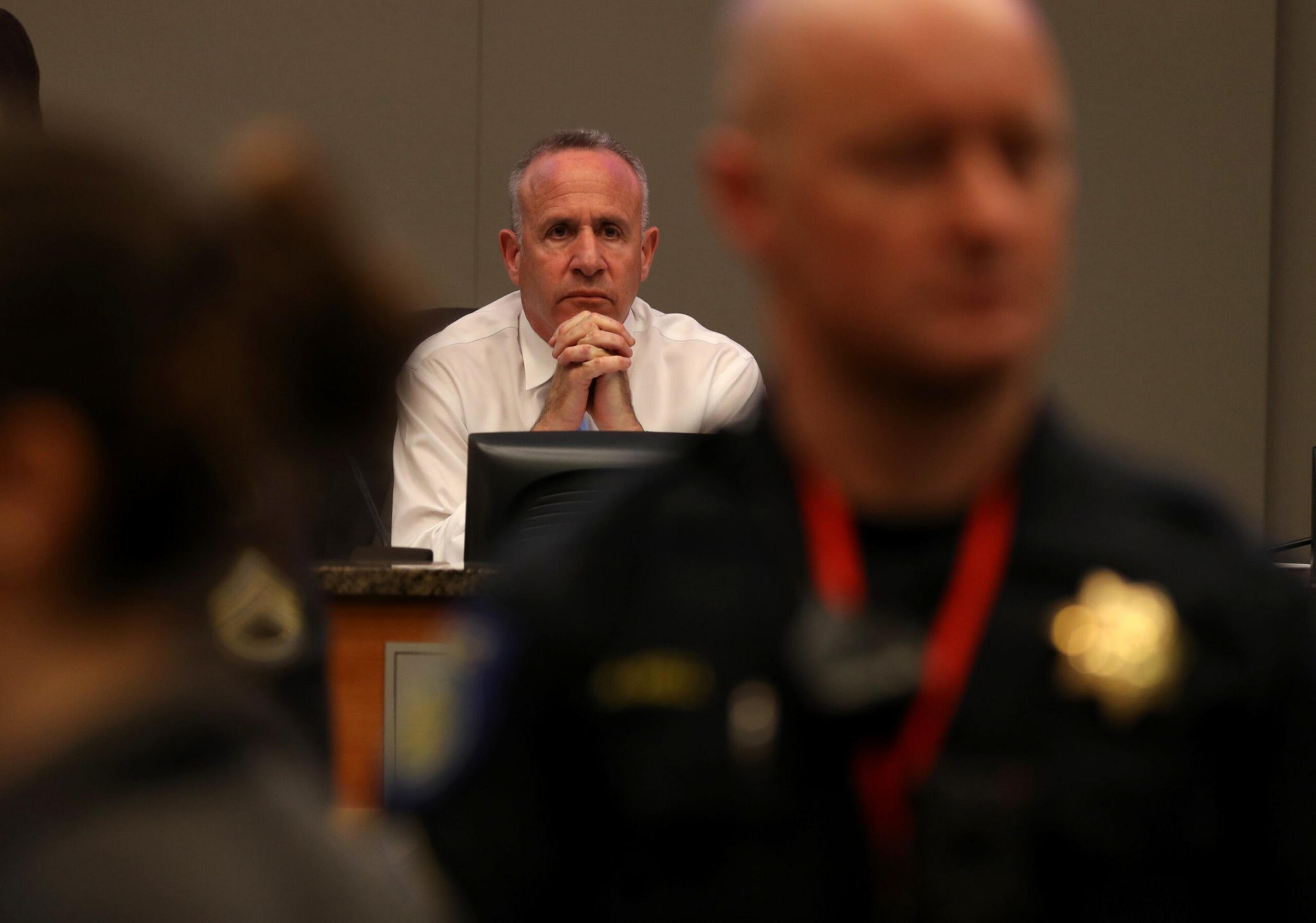Two of the bargaining units involved in the nearly monthlong University of California strike have officially ratified their contracts with the university system, meaning some 12,000 academic researchers and postdocs are back to work Monday.
The strike kicked off on Nov. 14, with academic workers citing unfair practices by the University of California during the contract bargaining process. At its peak, the strike included nearly 50,000 academic workers across the 10 campuses and the Lawrence Berkeley National Laboratory.
The two groups voted in favor of five-year contracts, which include major compensation increases, eight weeks of parental and family leave at 100% pay and anti-bullying protections, among other benefits.
As the strike went on, the union escalated its tactics. This month, 10 union members from UCLA were arrested on trespassing charges (opens in new tab) after demonstrating at the UC Regents’ office, and 17 academic workers were cited (opens in new tab) after a sit-in at a UC Office of the President facility in Sacramento.
There are a total of four UC bargaining units, backed by the United Auto Workers, that are part of the strike. The two successful ratifications leave roughly 37,000 workers split up between academic student employees and student researchers still on strike.
Those include graduate students who do a bulk of the work in teaching and grading for undergraduates, a particular concern for campuses in the midst of end of term finals and projects.
Contract negotiations for the remaining academic workers were heading toward an impasse, and the UC and the union have agreed to voluntary mediation to resolve outstanding issues. The two sides have agreed on Sacramento Mayor Darrell Steinberg as a neutral third party to help facilitate the bargaining process. Steinberg was a longtime leader in the state Legislature who previously led negotiations around the construction of UC Davis’ Aggie Square development (opens in new tab).
“I believe Mayor Steinberg is uniquely positioned to help facilitate a fair and reasonable contract that allows us to support our students as they work towards their degrees,” UC President Michael V. Drake said in a statement. “Our faculty, students, and staff have shouldered the burden of a strike for far too long.”
The university system has repeatedly sought an end to the initial bargaining process through mediation and recently told UAW reps they would no longer be making new proposals in bargaining. Union leaders agreed to voluntary mediation to avoid impasse mediation (opens in new tab), which would be governed by the California Public Employment Relations Board.
Postdocs—who approved their contract (opens in new tab) with an 89% vote—will also receive a $2,500 annual child care subsidy that will increase annually, as well as new transit benefits. Academic researchers—who approved their contract (opens in new tab) with an 80% vote—won better job security protections and expanded paid bereavement leave.
Tom Faust, a postdoc at UCSF and a member of the union’s bargaining committee, spent the morning of his first day back at work on campus checking on rats that are part of his experiments around how dopamine impacts the brain and behavior.
Faust said the last month on the picket lines has meant missed deadlines for papers and proposals, but he considers the newly ratified contract a major win for the academic workers’ nascent labor movement—in particular, the agreements around compensation.
Faust, who has two young children, said the child care subsidy will help ease the impact of inflation on his family and hopes additional benefits can help address the “filtration process” in academia that squeezes out marginalized groups.
He positioned the strike as an educational opportunity that helped to build labor solidarity among academic workers and could presage future actions across the country.
“This is the first postdocs strike, the largest in higher education, the first with multiple bargaining units. Before this, we didn’t have the connective tissue organizing our workforce,” Faust said. “There’s definitely is a newfound labor militancy as we experience the crisis of underfunding and austerity that has been going on for decades in the academy.”
